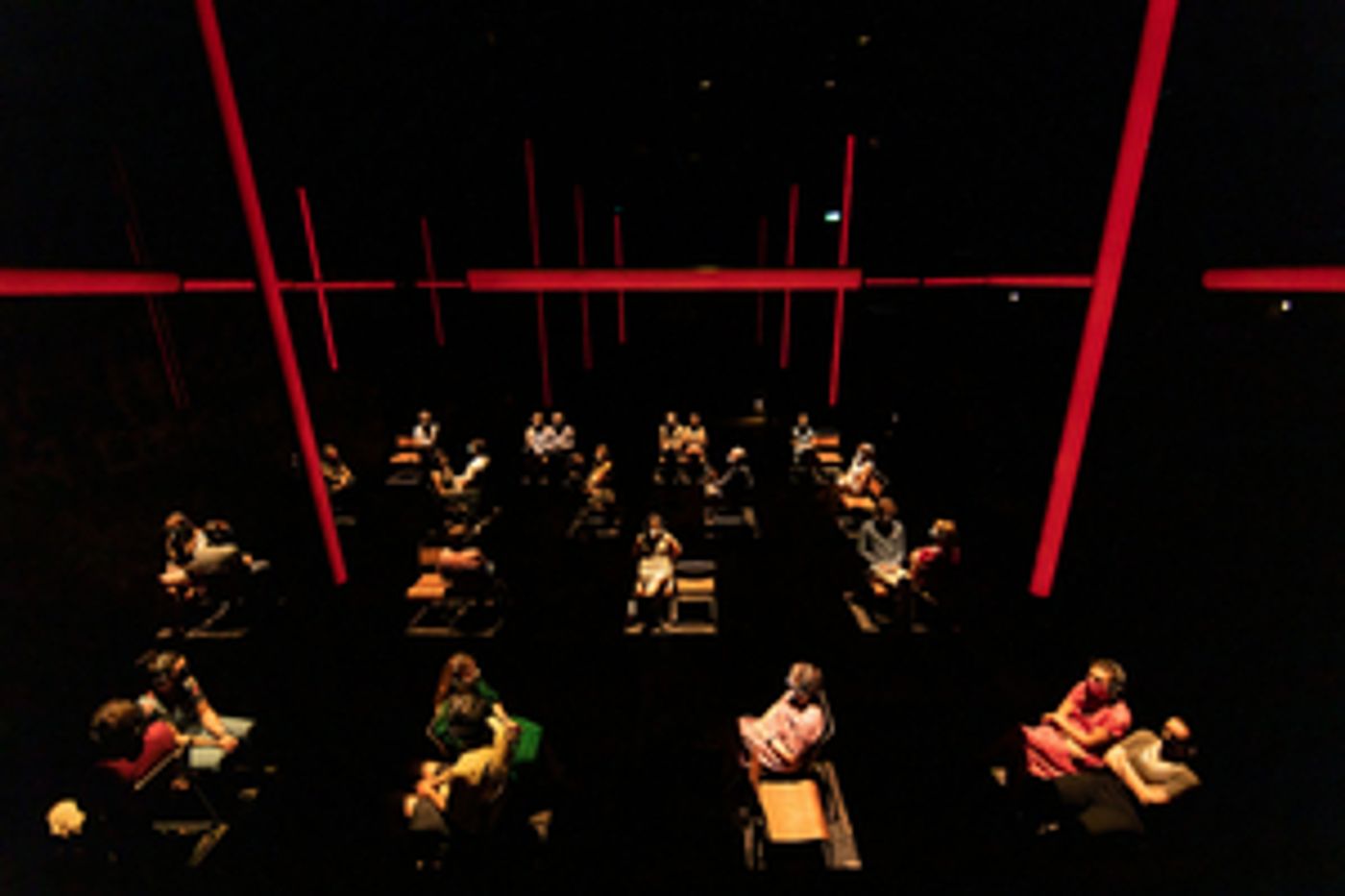
![]() The buzz that usually pervades the West End is subdued, even on a Saturday afternoon with the sun shining bright and hot. London still has that feel of a city straight out of a post-apocalyptic film.
The buzz that usually pervades the West End is subdued, even on a Saturday afternoon with the sun shining bright and hot. London still has that feel of a city straight out of a post-apocalyptic film.
In a world where, all of a sudden, theatre as we know it has become a potential threat to the health of the public, the Donmar has managed to reopen in a Covid-safe and all-around exceptionally comforting new version of itself. However, whether you're reaching it from Covent Garden or Oxford Street, it's impossible to escape the view of all the theatres that still have their doors locked and their windows obscured.
The venue, which could once welcome 251 theatregoers, has been turned into an immersive experience with reduced capacity housing a topically unsettling yet ultimately heartwarming adaptation of José Saramago's 1995 novel Blindness. Reworked by Simon Stephens and directed by Walter Meierjohann, the original story becomes a sound installation featuring a sophisticated binaural soundscape curated by Ben and Max Ringham and lighting design by Jessica Hung Han Yun.
The project is a clever and compelling way to reopen the theatre whilst adhering fully to the latest guidelines that impose masked social distancing. You couldn't feel any safer in the hands of the Donmar staff. From multiple hand sanitiser stations to being personally escorted to the seats, they reassure patrons while reminding them of the beauty of theatre.
The auditorium is dark, with neon lights faintly pulsating overhead. Around 30 chairs are arranged schematically where once the actors would have stood, putting the audience in the place of honour instead and arming them with snazzy headphones. Saramago imagines a field where everyone suddenly starts going blind except for one woman, played by Juliet Stevenson in the Donmar's production. Her narration goes from distant descriptions of the events to a personal account of the horrors that make her universe transform from curious dystopia to humanitarian disaster.
As blindness destroys the nation, we descend into darkness too and the fluorescent lighting that accompanied the first part turns into brief flashes and remote amber-coloured rays. While the government is trying to avoid a public crisis, chaos descends on society. Blind people are locked inside enclosures and denied access to basic needs, until the pandemic takes over and every conventional structure crumbles.
In the programme, we learn that Meierjohann tried to stage the novel thrice over 20 years. If the production had happened before we were forced to press pause and reevaluate our lives, we'd probably have brushed it off as a great dystopian piece. Now, it rings too true not to take note of it. The fictional heads of the government emphatically push for "individual responsibility", and they use a "curve of resolution" to prevent the further spread of this new unknown illness (spoiler alert, it doesn't really help), while armed forces are employed to contain the infected. Sounds familiar?
Sat in the dark, we observe - or, rather, listen to - the demolition of society as we know it. Stevenson whispers in our ear, attempting to comfort and protect us, while single-handedly trying to help as many as she can with her sight. As we plunge into pitch black, we realise once again how easy it is for people to sacrifice their humanity and turn into monsters. "Whatever happens, don't lose yourself," she urges at the end of the disquieting journey. Surprisingly, the piece ends up being a warm yet jolting reminder that there's light at the end of the tunnel - even when you can't see it.
As the house lights are turned on, we stir from what was like a ghostly dream that felt too real. A round of applause comes from a few audience members before spreading to the rest, as if we'd forgotten what you do in a theatre at the end of a performance. It feels good to be back.
Blindness runs at the Donmar Warehouse until 22 August with multiple performances per day.
Photo credit: Helen Maybanks
Reader Reviews
Videos

